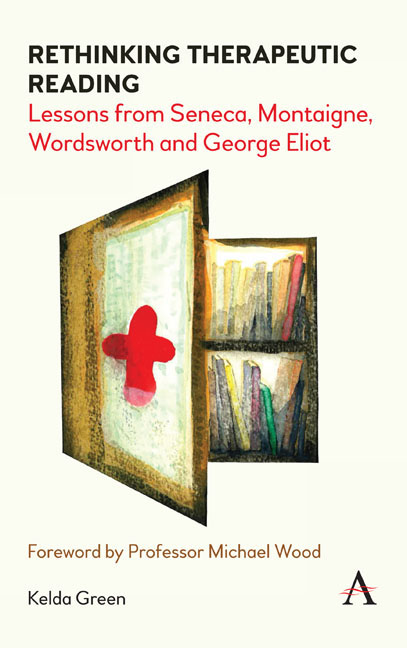3 - Therapy and Poetry: Wordsworth, after Seneca
Published online by Cambridge University Press: 16 July 2020
Summary
Wordsworth and Seneca
William Wordsworth was 21 years old when he first travelled to France in November 1791. He discovered a country that had been radically transformed by a revolution that was still unfolding, and remained there for over one year. Jane Worthington argues that Wordsworth developed a particular interest in and understanding of Roman philosophy – and specifically Stoicism – while living in France. In Wordsworth's Reading of Roman Prose she describes how the culture and philosophy of the Roman Republic had gained a new significance in revolutionary France: ‘The heroic figures of Rome were regularly set up as models of virtuous conduct. French republicans were constantly urged to imitate Roman simplicity of manners.’ Worthington argues that in France, Wordsworth ‘learned that history, and particularly the ancient history of Rome, could be made to serve present ends. History had come to life.’
While in France, amidst a new world of freedom, Wordsworth formed a relationship with a woman called Annette Vallon, with whom he had a daughter named Caroline. However, in December 1792, just before the Reign of Terror took hold of the country and war was declared between England and France, Wordsworth returned home, leaving Annette and Caroline behind. Immediately after returning from France, Wordsworth struggled to find relief from his own guilt, grief and sense of disillusionment in the revolution, in an intermingling of private and political feelings. In 1795 he began work on a text that was referred to until its eventual publication 48 years later simply as ‘a tragedy’. What eventually became known as The Borderers is a relentlessly bleak drama, which followed the template laid down by Seneca in that it served as an initial holding ground for the trauma – both individual and national – that Wordsworth had experienced in France.
The Borderers is a closet drama that was never intended to be acted out on a stage but exists in a strange in-between space between private and public discourse. As Byron said of his own closet drama Cain, it is ‘mental theatre’. The Borderers belongs to a cluster of plays written by Romantic poets in response to the French Revolution: Coleridge's The Fall of Robespierre (1794) and Osorio (1797), Shelly's Prometheus Unbound (1820) and The Cenci (1819) and Byron’s Cain (1821). Karen Raber establishes a link between these plays and the closet dramas of the English Civil War, the Restoration and the Renaissance.
- Type
- Chapter
- Information
- Rethinking Therapeutic ReadingLessons from Seneca, Montaigne, Wordsworth and George Eliot, pp. 41 - 66Publisher: Anthem PressPrint publication year: 2020



